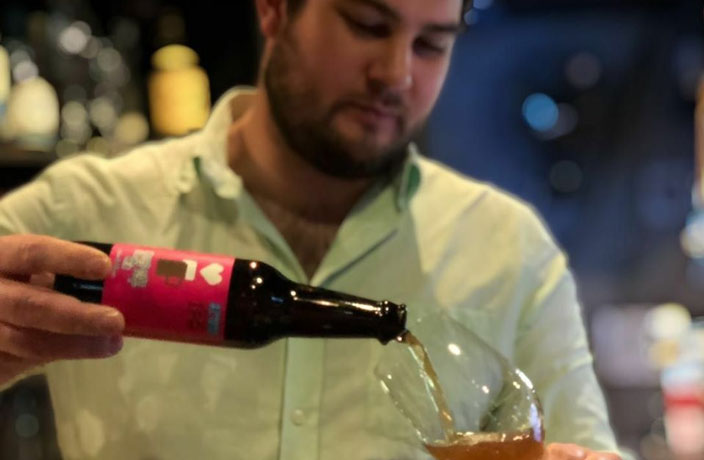This article is a part of our Appetite for Destruction feature, a series of interviews conducted by That’s staff to examine the impact of the novel coronavirus on China’s food and beverage industry. For more articles from this series, click here.
Chase Williams – Shanghai
Operating Partner at The Rooster, Perch
Chase Williams originally hails from Coral Springs, Florida and has been living in Shanghai for eight and a half years. He got his start at The Rooster as the bar’s trivia host, before working his way up the totem pole and securing his current position as operating partner. Below, Williams shares his thoughts on the impact the novel coronavirus is having on Shanghai’s F&B scene:
In what ways has the novel coronavirus impacted your F&B businesses?
The Rooster remained open as usual through Chinese New Year and was fortunate not to receive any extended closure notice from our landlord or the police until February 3. While open from January 24 to February 2, our business was quite good, with good crowds coming around our happy hour times and for events such as our free-flow brunch, Chinese New Year’s Eve party and Australian Open Tennis matches. On February 3, during the Super Bowl, the police came and it was highly recommended that we close. We have complied and anxiously await the time when we can reopen.
What measures have your businesses taken to mitigate the damage caused by the prolonged CNY holiday and the ongoing coronavirus outbreak?
During the early days of the extended holiday announcement there were still a good number of customers (expats for us) in town. We noticed from the start of the coronavirus outbreak that local customers were not coming out to our establishments or other public spaces. We emphasized catering to expats even more by extending their favorite deals (free-flow brunch) and having a harder push on Western sporting events than we normally would have.
As most open businesses did, we took the virus seriously and provided masks to our employees, followed a serious disinfection schedule of surfaces and made things like alcohol swabs, wipes and hand sanitizer, among others, available to guests. We also tried to emphasize this on WeChat and not just inside the bar to assure potential customers that we were providing a clean environment.
More generally, how has the outbreak impacted the F&B industry in Shanghai, based on your observations?
It’s been devastating. A vast majority [of F&B venues] have been closed and most that have fought to stay open are putting up well below average numbers despite still needing to pay rent. There has been no news of whether or not rent will be subsidized despite the forced closures.
The general industry expectation is that it will take at least six months for most businesses to recover, and many small businesses will be forced to close their doors for good well before then.
How long do you think it will take for your business to recover as a result of the virus and the preventative measures that have been put in place?
For Rooster, I’m a bit more optimistic than most, because our customers are so heavily expat. I hope that by March and April we’ll be experiencing similar revenue numbers to last year.
What could be the possible positive outcomes of this disease outbreak for Shanghai’s F&B scene going forward?
Improved hygiene for bars and restaurants as well as customers. That’s about it, unless someone finds a way to adapt and find improved business beyond marginally profitable delivery orders.
Responses have been edited for clarity and brevity.
For regular updates on the novel coronavirus outbreak in China, click here. For more articles in our Appetite for Destruction series, click here.
[Cover image via Chase Williams]





















0 User Comments